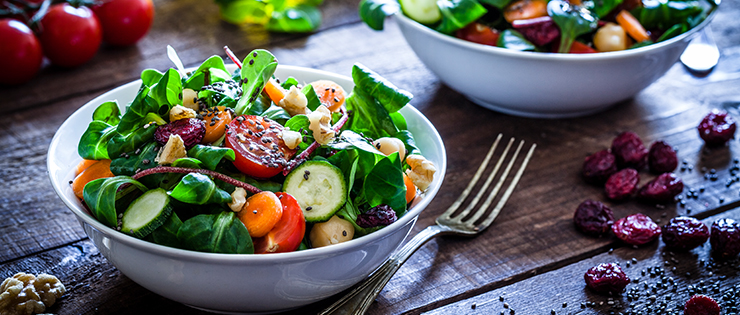
When did eating get so complicated? Let’s forget all the diet fads for a second and let a no-nonsense nutritionist break down how to portion out your meals throughout the day for optimal health and wellness.
Energy in vs energy out
We can’t talk about portions without chatting about energy balance. There is no need to focus too much on counting calories or logging workouts on your smart watch, but do we need to monitor the amount of physical activity (energy out) and the amount of food we choose to consume (energy in). If you increase the portions you consume and lower your exercise habits, the resulting symptom will be weight gain. Alternatively, if you reduce your portion size and increase your exercise, you will find the result will be weight-loss.
Portion size
Take a moment to go open the kitchen cupboards and check the size of your dinner plates. Do they look around 30cm? A recent popular trend in homewares meant they ‘supersized’ our plates without us really noticing, traditionally measuring up at 25m. Making the switch back is an easy way that research has shown will make you eat 22% less. A very popular saying is to ‘eat breakfast like a King, lunch like a Prince, and dinner like a Pauper’. Dinner has typically become our largest meal of the day, but maybe we should remind ourselves of switching the portions on their head to adhere to the easy to recall riddle. Unless you are an endurance athlete we don’t need as much fuel in our body when we sleep. Tapering down portion sizes throughout the day allows us to utilise our metabolism when it is at its most efficient in the morning and also have time to use the energy up through physical activity. Eating lighter dinners is also better for our sleep, digestive system, insulin resistance and weight. Don’t fancy buying a new set of dishes? An easy hack is to practice ’hara hachi bu’ a Japanese saying translating as ‘eat until you are 80 percent full’.
Timing
Eating regular meals throughout the day will help control your appetite and self-control. But there is no one size fits all rule when it comes to the number of meals per day we should be consuming. Maybe you thrive better on three large meals per day, whereas your friend has boundless energy on five small meals. Buddhist Monks only eat two meals and with the rise in popularity of science-backed intermittent fasting, so now do a lot of people in the Western world as they tend to skip breakfast. I believe the importance lies in what and how much food you eat, rather than when you eat. In my professional experience keeping a food and mood diary is the best way to work out what your body type prospers on.